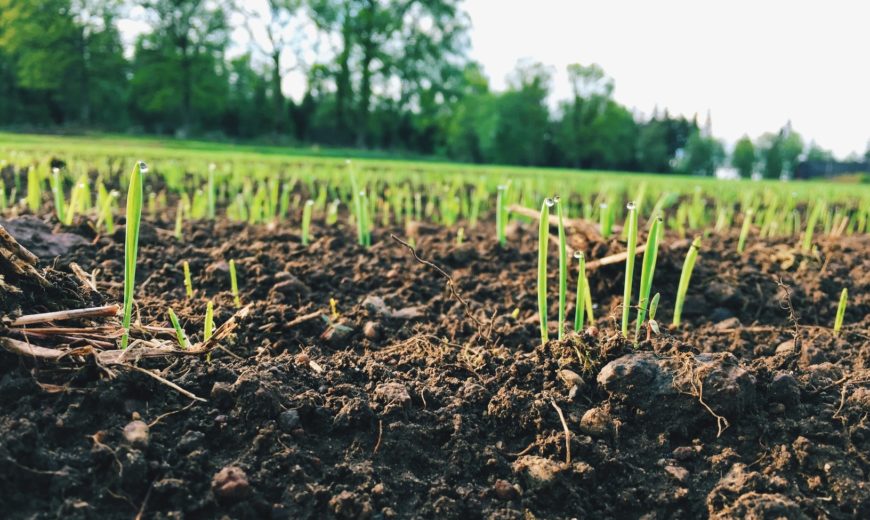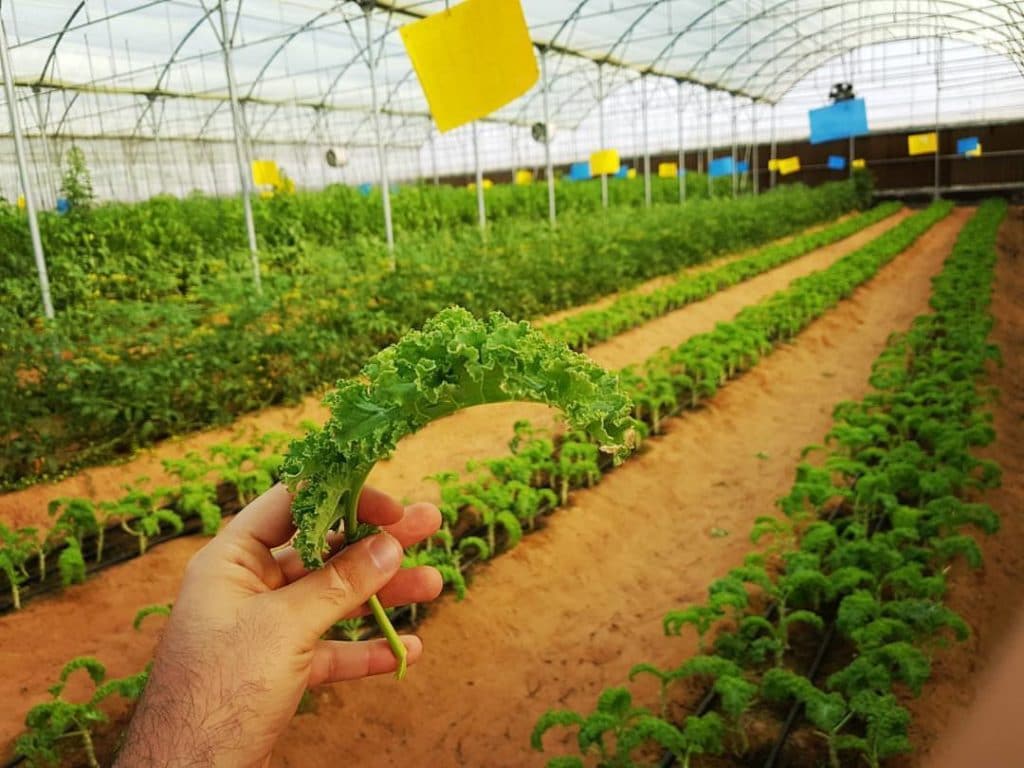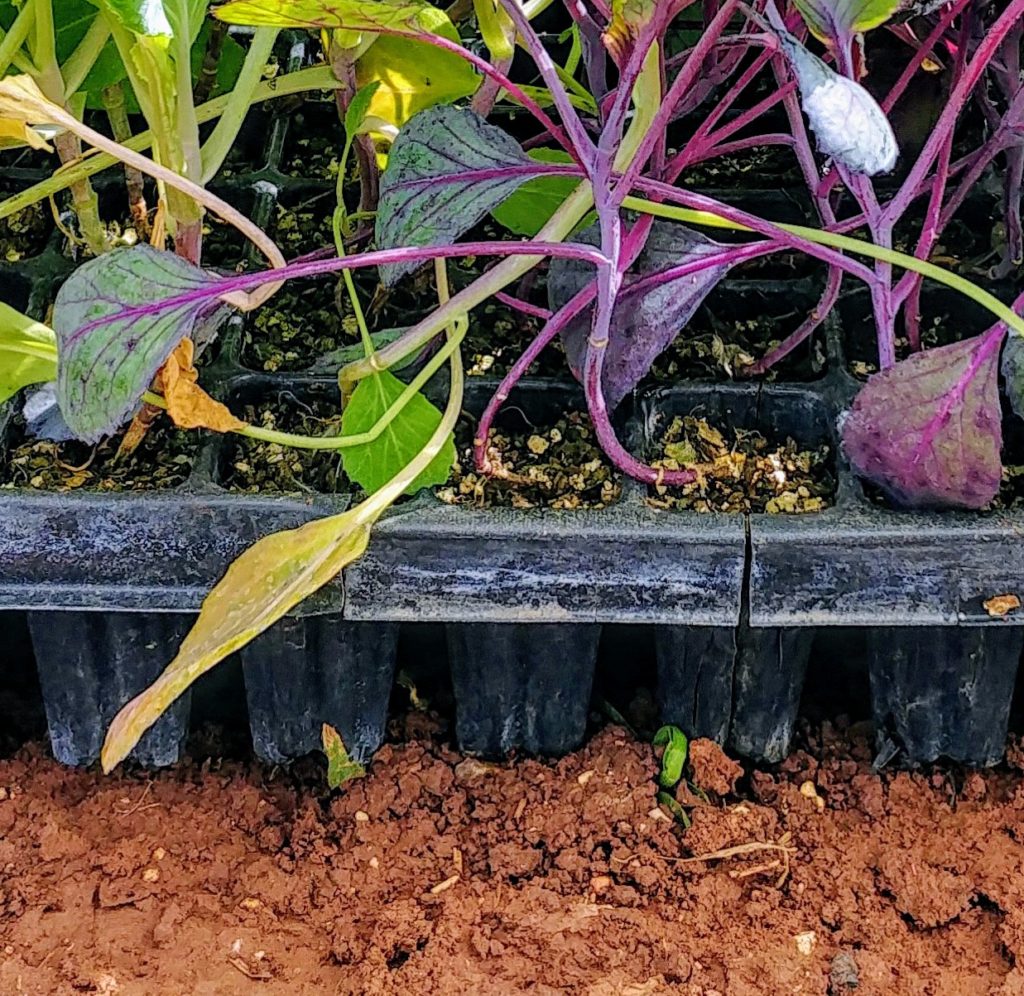
Prepare garden soil to be the best
By the end of this article, I hope you walk away with just one thing, and that is:
Gardening success starts with soil preparation.
Invest in your soil. By that I mean, prepare it well, maintain it, and nurture it – and you will support healthy plant life and a thriving home garden.
Why does healthy soil determine a garden’s success? What are the best soil preparations for vegetable gardens? How does one go about improving sandy soil in home gardens in the Middle East?
I’ll share the answers below.
So, let’s get down and dirty with the soil talk!
The importance of healthy garden soil

Here are the top 7 reasons why you should invest in soil preparation
- Soil provides anchorage to plants
- It holds water, air and nutrients – all essential for plants
- The ‘soil food web’ contains an ecosystem of micro-organisms that fix nitrogen, decompose organic matter, and bring minerals to the plants
- Soil protects plant roots from temperature fluctuations
- It also protects plants by deterring pathogens and increasing pest resilience
- Well prepared soil minimizes leeching (loss of nutrients)
- It absorbs carbon, reducing greenhouse gases
Phew! You can breathe a clean sigh of relief knowing that your garden’s healthy soil is doing so much good for the earth!
And now, what to do with all that sand?!
Improving Sandy Soil in the Middle East
Whether you live in Dubai, Kuwait City or Doha, or anywhere else in the Middle East, and assuming you have to work with sandy soil, you’ll want to use sweet sand, from which the salt has been removed.
Sandy soils don’t hold on to water well and they tend to leach nutrients quickly. Therefore, you will need to treat it in two ways.
- To improve the water retention capacity, add up to 4 inches of aged manure (from cow or chicken) and/or 1-2 inches of biochar. Biochar is a fancy name for coal, that needs to be ‘activated’ before it is used; here is some handy info on the same if you would like to try it.
- To reduce the leaching of nutrients, add smaller amounts of fertilizer nutrients and do so more often.
Thereafter, you can prepare your soil by referring to the following Section.

Take care of your soil, and it will take care of you
Nasser Tweet
Best Soil Preparations for Vegetable Gardens
As I touched upon earlier, if you are starting a vegetable garden, the following are the easiest organic soil preparations, that will work very well for the majority of vegetables.
When planting seeds directly or transplanting saplings (baby plants) in raised beds, in containers or in the ground, use the following elements:
- All-purpose organic potting mix OR sandy topsoil treated as recommend above (60%)
- Compost (30%)
- Peat moss (10%) or aged manure (10%) depending on plant needs. Peat moss will provide extra aeration (particularly important if the soil is clayey or you are growing root vegetables), while aged manure will provide macronutrients and increased fertility for those crops that need it, like eggplants, tomatoes, and squashes.
Other elements you may consider adding to your soil mix
Vermicompost: This contains all the good stuff after the worms are done with breaking down organic matter, and does not contain all the bad stuff that was in the organic matter such as toxins and pathogens!
Mycorrhizae: These fungi associate with 70% of agricultural crops, growing into root tissues and thereby increasing moisture and nutrient absorption of the roots.
Kelp: This is made from seaweed, provides (some) NPK, and several trace minerals that are extremely beneficial to plants.
For starting your seeds indoors, either
- Use a commercial organic seed starting mix, or
2. Make your own by mixing 50% peat moss + 50% vermiculite.
(Note that most commercial preparations of peat moss have been amended for a higher pH of between 5.5-6.5; if the peat moss hasn’t been amended and has a pH of under 4.5, then you will need to add limestone to increase the pH). The addition of some good quality, pasteurized compost to this mix would be a welcome addition.
The following are some of the measures we have taken to improve soil health at our farms.
Expert tips to improve soil
- Don’t expose your soil! Instead mulch around your plants, maintain ideal spacing, plant cover crop between plants, and this will reduce evaporation and soil erosion.
- Incorporate plant residues; however,
- Remove diseased plants.
- Add two inches of organic matter, like compost, every growing season.
- Don’t compress the soil by walking or applying excessive pressure to it.
- Take advantage of the summer months when not much grows outside to grow a cover crop like alfalfa which can be cut down and incorporated into the soil as “green manure”. This will improve soil structure and add nitrogen and biomass. Be sure to water the alfalfa cover crop, and I also recommend installing a shade netting.
- Don’t do deep tilling of the soil which harms both soil structure and soil life.
- Practice crop rotation, growing different families of vegetables in the same container or bed in subsequent seasons
Okay, you’re ready to get started – so where do you go?!
- In the UAE, Shalimar and Desert Oasis and LocalRoots have a good selection of organic soils and fertilizers
- In Kuwait, see Plantnmore for the same
One phrase that keeps coming back to me as I wrote this article was, “Take care of your soil, and it will take care of you”. Yes, indeed. And that’s the low-and-dirty on soil.
Happy planting! 🌞
The Simple Secret to Improving Soil Fertility: Using Nitrogen-Fixing Plants! - SoWeGrow
October 25, 2020[…] As we’ve explained in The Gardening Secrets Blueprint, using cover crops, adding compost, crop rotations all improve soil health. […]
Yellow plants making you blue? Avoid plant nutrient deficiency of the 7 Micronutrients your vegetables need to grow - SoWeGrow
March 18, 2021[…] Read on more best soil preparation and tips. […]